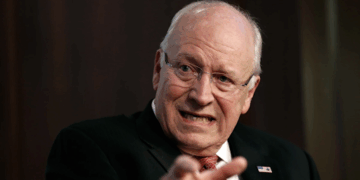Gov. Tony Evers has vetoed Assembly Bill 85, a Republican-backed measure designed to toughen the state’s response to repeat offenders on probation, parole, or extended supervision. The legislation would have required the Department of Corrections to recommend revocation if an offender on community supervision was charged with a new crime.
Supporters argued the bill was essential to public safety, while opponents warned it would balloon prison populations, cost taxpayers hundreds of millions of dollars, and undercut due process protections.
AB 85 would have changed that process by mandating that DOC recommend revocation in any case where the person was charged with a new crime.
The legislation amended several state statutes covering extended supervision, parole, and probation, all with the same requirement: if a new charge is filed, DOC must recommend revocation, regardless of whether the charge is ultimately proven.
The final decision would still rest with administrative law judges, but the bill would have guaranteed every case went before them.
Under current law, a person released on supervision remains in the legal custody of the Department of Corrections and must follow specific conditions or rules. If those rules are violated, the individual may face sanctions, which can include revocation and reincarceration.
In his veto message, Evers called AB 85 an “unfunded mandate” on the Department of Corrections (DOC). He noted the bill would cost more than $330 million in its first two years and “hundreds of millions of dollars in unknown, ongoing costs.” Those figures, he added, do not include construction of additional prisons that would likely be necessary.
Evers said Wisconsin should focus on evidence-based programs that improve reentry opportunities, provide treatment for mental health and substance use disorders, and reduce recidivism rather than “locking up more people without addressing the root causes of crime.” (RELATED: Wisconsin Judge Escalates Showdown Between ICE and ‘Sanctuary County’ Sheriff)
Currently, DOC agents hold discretion over whether to recommend revocation, and cases are heard by administrative law judges. In 2019, DOC data showed 6,280 individuals on supervision were charged with new crimes but not revoked, which Republicans cited as proof of a systemic flaw.
AB 85 was crafted to ensure that new charges automatically triggered a revocation recommendation, with proponents emphasizing that the bill did not guarantee revocation but guaranteed judicial review.
Supporters said the bill would close a dangerous loophole, keep repeat offenders from cycling in and out of the system, and reassure communities increasingly concerned about rising violent crime.
Opponents, however, argued the bill eroded the principle of “innocent until proven guilty” by treating charges as convictions. The Wisconsin Justice Initiative and Wisconsin Justice Initiative Action said the measure would punish individuals based on accusations alone, many of which may later be dismissed.
They also noted Wisconsin prisons already hold more than 23,000 inmates, with another 63,000 on supervision, warning that the system could collapse under the added strain of more than 4,600 new revocations each year.
Rep. Brent Jacobson, the bill’s author, blasted the veto, saying Evers ignored the concerns of communities dealing with repeat criminal behavior. Jacobson argued the legislation ensured that when convicted criminals committed new offenses, their cases would be reviewed in court. “Our constituents deserve to be protected from repeat offenders who are already on their second, third, or fourth chance,” he said.
The Senate author, Rob Hutton, echoed Jacobson’s frustration, calling the veto a blow to public safety. “Of all the concerns I hear from my constituents, few are as frequent or as heartfelt as their concerns about crime—particularly crimes committed by repeat offenders who are set free almost as quickly as police can arrest them,” Hutton said.
Hutton added that AB 85 was a sensible bill that would have made communities safer by keeping persistent offenders off the streets. “This veto is disappointing and frustrating. We should be able to agree that committing a crime while still serving your time should have actual consequences. It’s frustrating beyond words that the status quo will continue as a result of this veto, and innocent children and families in our community will continue to live in fear of being harmed and killed.”
(RELATED: Victims’ Rights Law At Center of Bradley-Taylor Wisconsin Supreme Court Election)
































